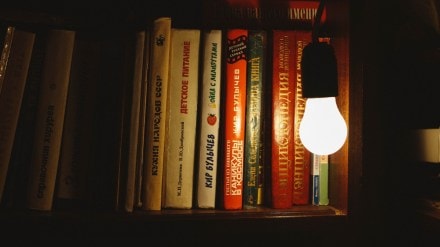By Abhishek Gupta and Neha Dhingra
India’s role as host to world leaders at the G20 summit was a moment for our history books. With several leaders taking centrestage, it was emphasised repeatedly that – energy is high on every nation’s agenda. And efficiency, more so. But what can governments and world leaders do to help citizens partake in efficiency? Turns out, quite a bit.
In an era where environmental consciousness and energy efficiency are paramount, the transition to LED lighting has emerged as a critical step toward India’s efficiency and sustainability goals. Among the pioneers of this transition stands India, a nation that recognised the significance of LED technology and embarked on a journey that not only transformed its lighting landscape but also set a global benchmark. At the heart of this revolutionary shift lies the Unnat Jyoti by Affordable LEDs for All (UJALA) programme – an initiative that has changed the world’s perception of lighting and energy consumption.
Catalysing the LED Revolution: UJALA completes 8 years
In 2015, India took a groundbreaking step by launching the UJALA program, a massive endeavour aimed at transitioning all household lighting to LED technology. India completed 8 years of energy-efficient and affordable LED distribution this year. This initiative was the world’s largest zero-subsidy LED bulb program for domestic consumers. Spearheaded by Energy Efficiency Services Limited (EESL), an entity under the Ministry of Power, Government of India, UJALA sought to mainstream LED lighting by reducing costs through innovative strategies.
At the heart of UJALA’s success was its unique approach to procurement – EESL aggregated demand and procured LED bulbs in bulk, economies of scale effectively driving down the cost of LED bulbs. The programme also received strong policy support from the government, making it a market-driven initiative that resonated with the masses. This strategy set the stage for the widespread adoption of LEDs, given their significant energy efficiency advantages.
Economic and Environmental Transformation
The impact of UJALA on the environment and economy has been profound. LEDs consume at least 75% less energy and have a lifespan of up to 25 times longer than traditional incandescent lamps. UJALA has sold over 368 million LED bulbs to Indian households, an achievement that demonstrates the program’s reach and influence.
The environmental and economic benefits of UJALA are staggering. These LED bulbs have saved more than 47 billion units (kWh) of electricity annually, resulting in almost Rs 19,000 crore worth of cost savings per year. The programme’s affordability has reduced annual home electricity costs by approximately 15%, translating to significant savings for households. Moreover, the cost of purchasing an LED bulb has drastically decreased, falling from Rs 310 in January 2014 to Rs 39.90 in August 2019. With UJALA, the cost of LED bulbs has come by down by 85%.
Furthermore, the programme’s efforts have led to a remarkable reduction of 38 million tons of CO2 emissions each year, showcasing its potential in combating climate change.
Impact on Growth of Industry
UJALA played a pivotal role in supporting India’s domestic LED manufacturing industry. The surge in demand led to a remarkable 130-fold increase in Indian LED lighting sales over just five years. As a part of the Make-in-India initiative, the programme bolstered the value of India’s LED manufacturers. Small and medium scale industry for lighting also emerged since the inception of UJALA. With strong policy support from the government, it has given a boost to the domestic lighting industry by encouraging Make-in-India manufacturing of LED bulbs whose production has increased from 1 lakh per month to 40 million per month since the launch of the scheme.
A Blueprint for Global Lighting Energy Efficiency Programs
UJALA’s success has not only transformed India but also set a global example for energy efficiency programs. The programme’s approach of driving down costs through bulk procurement, policy support, and mainstreaming innovative technology serves as a blueprint for other nations seeking to accelerate their transition to LED lighting.
Expanding Horizons: UJALA’s Ongoing Impact
The UJALA programme’s success has paved the way for even broader transformations. It expanded to include LED tubelights, ceiling fans, and the “Street Lighting National Program” (SLNP). UJALA has opened the doors for large-scale energy efficiency implementation in the country, highlighting that energy efficiency can yield significant benefits across various sectors in a short span of time.
(The authors: Abhishek Gupta is head of international strategy, evaluation & assessment, EESL India and Director – EESL, UAE, and Neha Dhingra, is a senior manager, CLASP. Views expressed are personal and not necessarily that of financialexpress.com)
